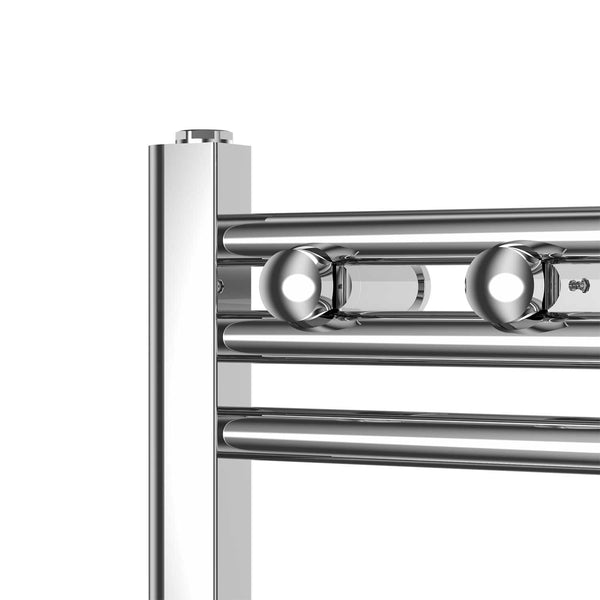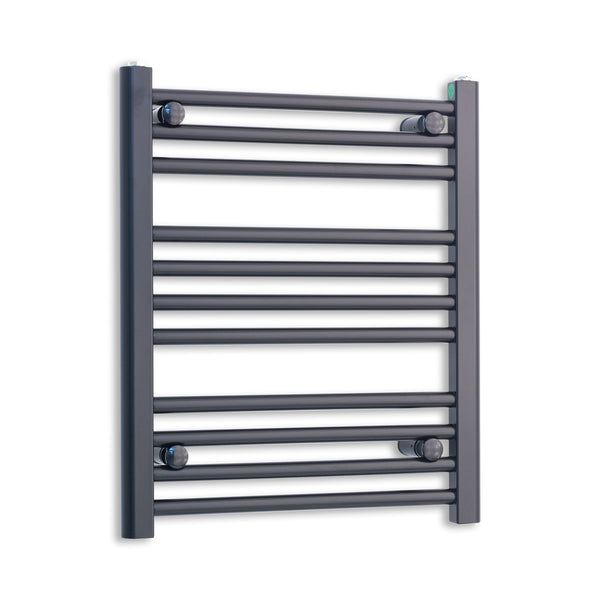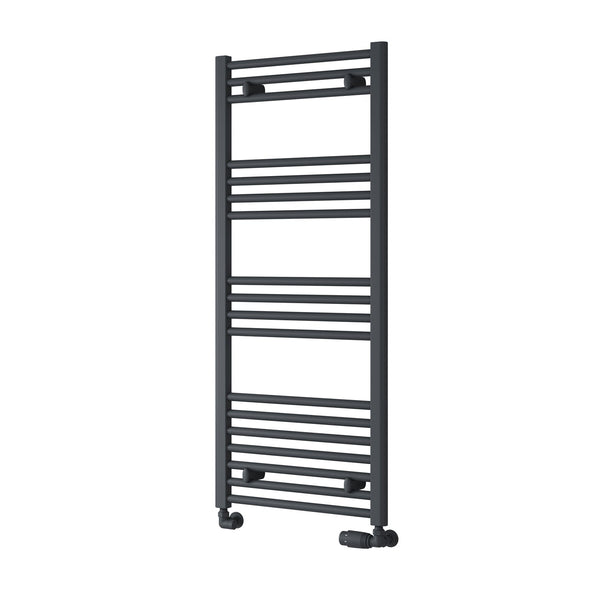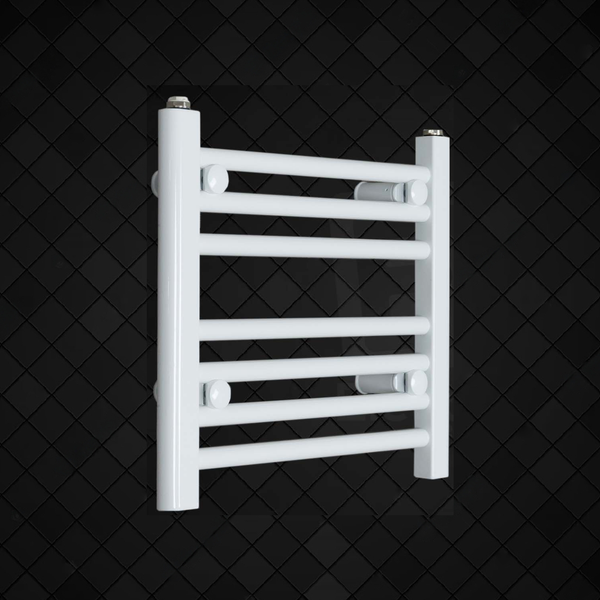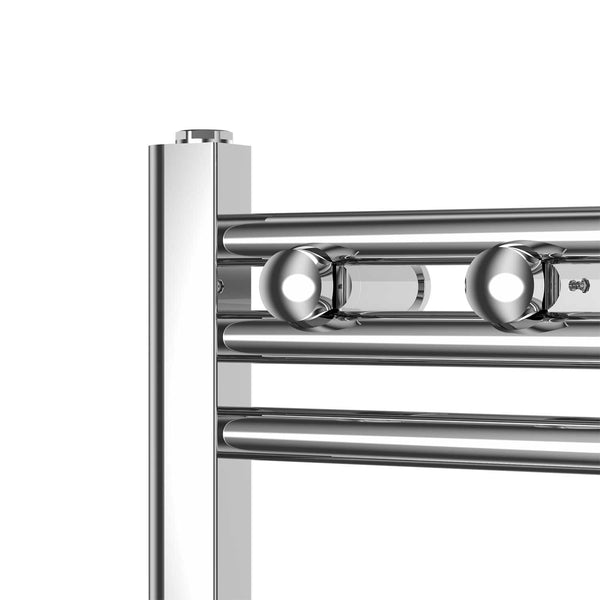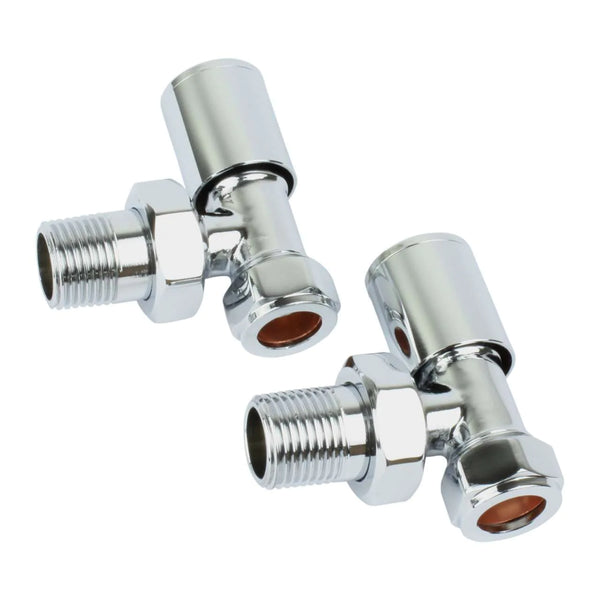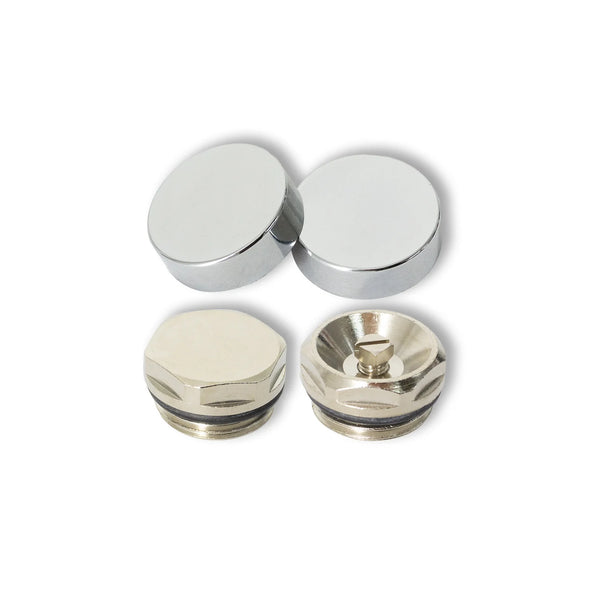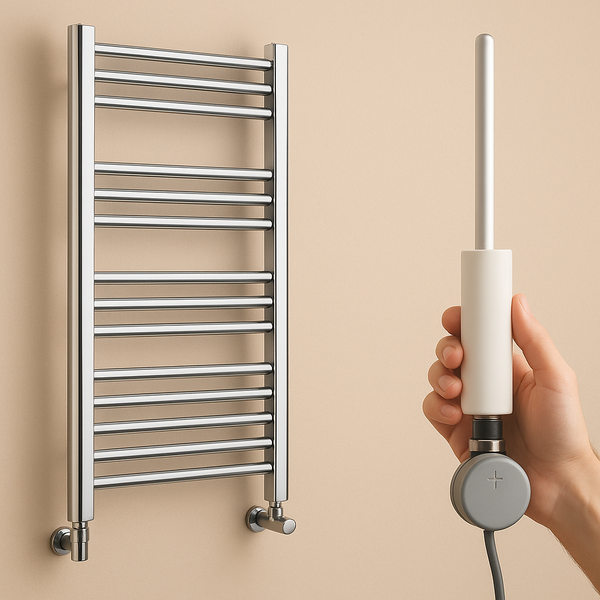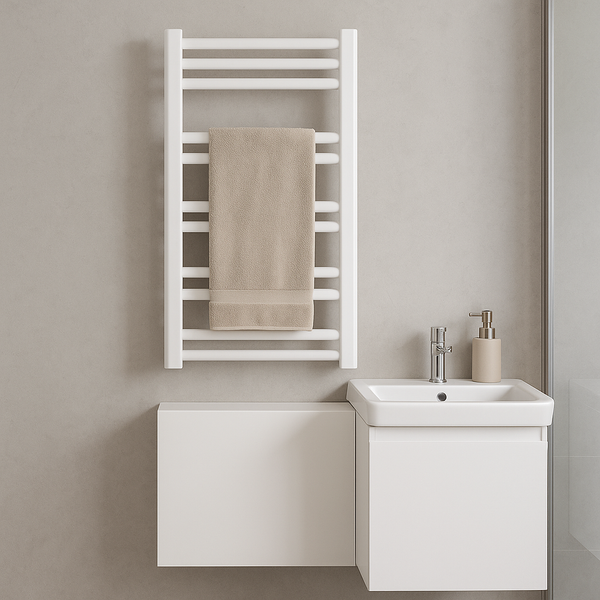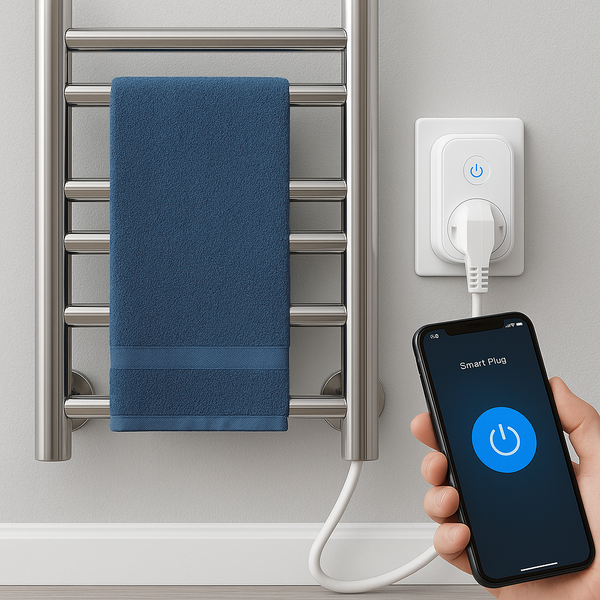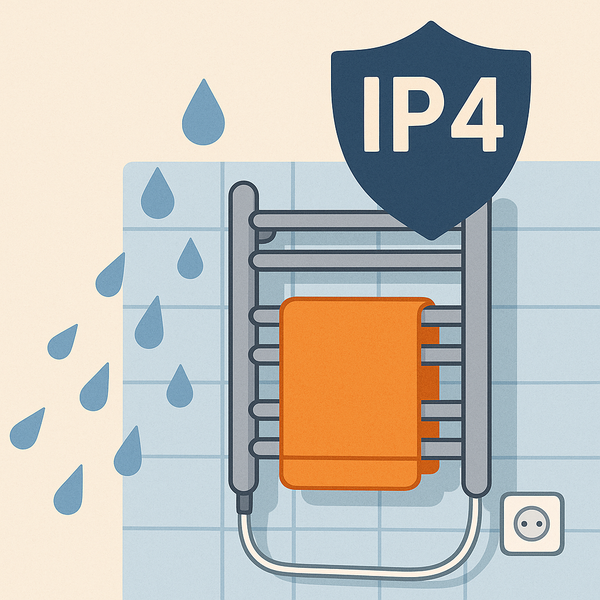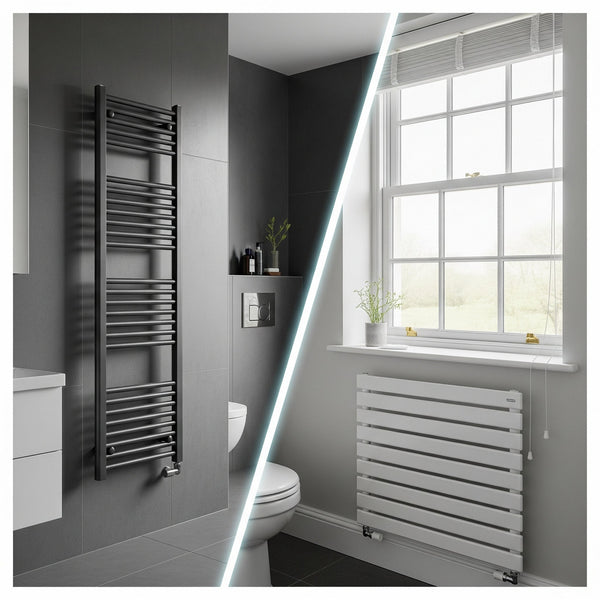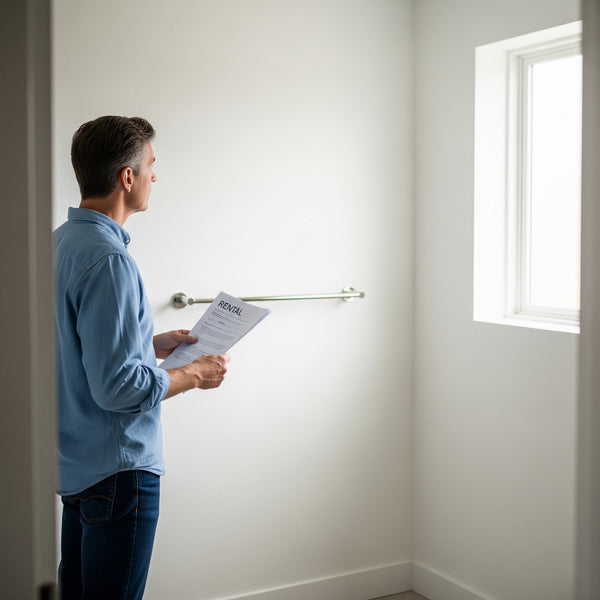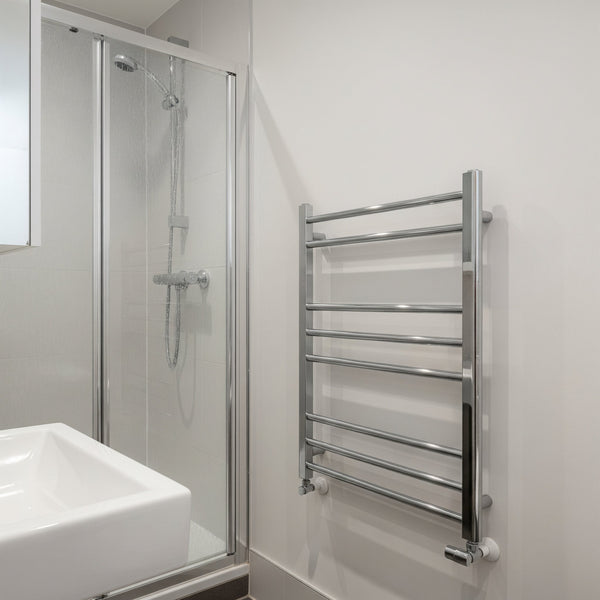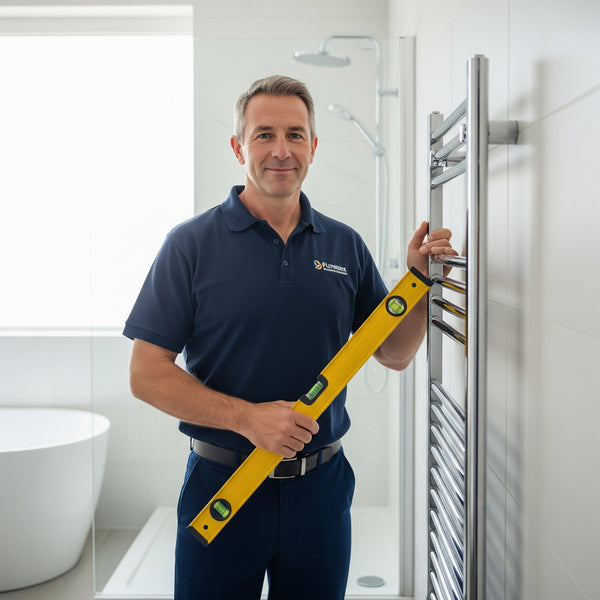Which Towel Rail Models are Most Durable Against Hard Water in the UK?
In many parts of the UK especially in the South East, London, and Midlands hard water is a daily reality. It leaves limescale in kettles, stains on shower screens, and unfortunately, causes long-term damage to bathroom fittings. Towel rails are no exception. If you're shopping for a new heated towel rail and live in a hard water area, durability becomes a critical factor.

This guide explains what hard water is, how it affects towel rails, and most importantly, which towel rail materials and models are best suited to resist corrosion, limescale, and internal buildup. We’ll also offer tips on maintenance and installation to get the longest life out of your towel radiator investment.
What Is Hard Water and Why Is It a Problem?
Hard water contains high levels of dissolved minerals mainly calcium and magnesium. While not harmful to health, these minerals form deposits when heated. Inside a towel rail, especially central heating models, these deposits build up over time and:
- Reduce heating efficiency
- Cause internal corrosion and blockages
- Lead to rust, leaks, or total radiator failure
Areas such as Essex, Kent, Hertfordshire, London, and Birmingham all experience moderate to very hard water. If you live in one of these areas, choosing the right towel rail is more than just about style it’s about lifespan.
Top 3 Most Durable Towel Rail Materials for Hard Water Areas
1. Stainless Steel Towel Rails – The Gold Standard
Stainless steel towel rails are the most durable and corrosion-resistant option on the market. Unlike chrome models, they’re not just coated they’re made entirely of high-grade stainless steel (usually 304 or 316). These models resist internal limescale and external rust, making them ideal for wet rooms, coastal homes, and hard water areas.
Benefits:
- Superior corrosion resistance inside and out
- Longer lifespan in hard water areas
- No flaking, peeling, or rusting chrome
- Available in brushed or polished finishes
Explore our premium Stainless Steel Towel Rail Collection perfect for long-term performance in the UK’s hardest water zones.
2. Powder-Coated Towel Rails – Durable and Stylish
While the internal structure may still be mild steel, powder-coated towel rails offer extra protection against corrosion due to their thick, durable outer coating. These finishes are less prone to flaking compared to traditional chrome, making them more resilient in humid, mineral-heavy environments.
Popular options include:
- Matt black towel rails
- Anthracite (dark grey)
- White powder-coated designer models
Just be sure to install inhibitor fluid in the system to slow internal corrosion if you're using a central heating version. Better yet, opt for an electric-only powder-coated rail in hard water zones no internal plumbing means less exposure to minerals.
3. Electric Towel Rails – Avoid Internal Buildup Entirely
If you want to completely sidestep the risk of hard water damage inside the rail, consider a sealed electric towel rail. These rails are pre-filled with glycol (anti-freeze) or heating oil, and sealed completely meaning there’s no contact with your home's water supply at all.
Advantages:
- No limescale or mineral buildup
- Consistent performance in hard water areas
- Ideal for properties without central heating
- Low maintenance and easy to control with timers
Browse our full Electric Towel Rail Range including matt black, chrome, and designer finishes, all suitable for hard water zones.
Models and Features to Look For
✅ Look for:
- 100% stainless steel construction (not just plated)
- Electric-only versions to avoid contact with system water
- Lot 20-compliant models with built-in energy-saving thermostats
- Models rated for wet rooms or humid environments
🚫 Avoid:
- Cheap chrome-plated steel rails (they rust quickly in hard water areas)
- Models without warranty in central heating setups
- Unsealed dual fuel models unless installed with inhibitor fluid
Installation & Maintenance Tips for Hard Water Areas
Even the most durable rail can be compromised without proper installation and maintenance. Here’s how to protect your towel radiator:
- Always use corrosion inhibitor fluid in central heating systems
- Flush the system annually to remove mineral deposits
- Install a magnetic filter to capture particles before they enter the rail
- Choose electric or dual fuel with sealed elements for high-limescale regions
Ask your installer for advice based on your postcode’s water hardness level. You can also check your local water provider’s website to view your area’s hardness rating.
Warranty and Support
At Company Blue, we back our most durable towel rail models with up to 5-year warranties. Electric components are covered by 2-year warranties. Our support team can also help you choose models that specifically suit hard water conditions in your area.
Need help selecting a hard water–friendly towel rail? Contact us for personalised recommendations.
Conclusion: Choose Wisely and Stay Protected
If you live in a hard water area in the UK, don't settle for a basic towel rail that might fail within a few years. Invest in the right material ideally stainless steel or sealed electric and pair it with smart installation practices to protect your bathroom and your budget.
Shop with Company Blue for towel rails that are built to last even in the toughest UK water conditions.
Frequently Asked Questions About Hard Water and Towel Rails
1. What is hard water and how does it affect towel rails?
Hard water contains high levels of calcium and magnesium minerals, which can cause limescale buildup inside towel rails, reducing efficiency and causing corrosion over time.
2. Which towel rail material is best for hard water areas?
Stainless steel is the best option due to its resistance to corrosion, rust, and limescale buildup ideal for long-term performance in hard water zones.
3. Are chrome towel rails suitable for hard water regions?
Standard chrome rails may look good but are more vulnerable to corrosion, especially if the chrome plating is thin or damaged.
4. Do electric towel rails get damaged by hard water?
Sealed electric towel rails are protected from internal corrosion because they do not connect to the home’s water supply, making them excellent for hard water areas.
5. What is a dual fuel towel rail, and is it suitable for hard water areas?
Dual fuel rails can run on both central heating and electricity. They’re suitable if installed with corrosion inhibitor fluid and proper maintenance.
6. How can I maintain my towel rail in a hard water area?
Use corrosion inhibitor in the heating system, flush it annually, and consider installing a magnetic filter to reduce mineral damage.
7. Does powder coating protect towel rails from hard water damage?
Powder-coated finishes protect the exterior from rust, but internal protection still depends on the core material and water quality.
8. Are stainless steel towel rails more expensive?
Yes, but they offer better longevity, require less maintenance, and are more resistant to hard water damage making them more cost-effective long-term.
9. Can I use a water softener to protect my towel rail?
Yes. Water softeners reduce the mineral content, which helps extend the life of towel rails and other plumbing components in your home.
10. Where can I find the most durable towel rails in the UK?
You can explore a wide selection of stainless steel, electric, and hard water–resistant towel rails at Companyblue.
